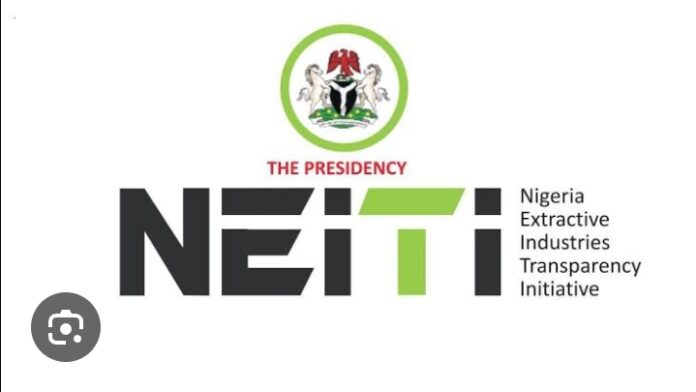The Nigeria Extractive Industries Transparency Initiative (NEITI) has unveiled a bold framework anchored on three interconnected pillars to guide Nigeria’s energy transition and climate justice efforts. The pillars focus on:
Data-Driven Decision-Making,
Inclusive Policy Development that Elevates Host Communities and Vulnerable Groups, Reform Implementation, including divestment and decommissioning protocols, legal safeguards for communities, and incentives for local beneficiation of Nigeria’s solid minerals.
Dr. Orji Ogbonnaya Orji, Executive Secretary of NEITI, shared the proposal at the 4th National Extractive Dialogue (NED 2025), currently underway in Uyo, Akwa Ibom State.
The dialogue’s theme ‘Transitions, Divestments, and Critical Minerals: Charting a Just Future for Nigeria’s Extractive Sector” — challenges stakeholders to envision a future beyond resource extraction, prioritizing justice, sustainability, and shared prosperity.
Dr. Orji emphasized NEITI’s support for Nigeria’s energy transition through a comprehensive study assessing the economic impact of energy transition. This study is designed to inform fiscal planning, protect livelihoods, and align with Nigeria’s Energy Transition Plan and the Climate Change Act.
He also highlighted NEITI’s newly launched Data Center, which serves as a digital transparency backbone, offering real-time, automated, and centralized extractive sector data to support disclosures and regulatory functions.
Further, “NEITI is driving transparency in the solid minerals sector, tracking significant royalty payments such as ₦2.92 billion from gold, ₦398.19 million from lithium, and ₦540.7 million from tin. These insights, he noted, must translate into tangible benefits for communities and spur industrial growth”.
“There can be no justice without data. No reform without records. No future without facts,” Dr. Orji stated, calling on all stakeholders to collaborate using NEITI’s credible data to drive policy reform and sustainable development.
He proposed the NEITI Energy Transition and Climate Accountability Framework, which mandates the agency to: Oversee oil and gas asset divestments, Track greenhouse gas emissions, Monitor Host Community Development Trusts,
Publish biannual climate performance reports. Dr. Orji urged Government at all levels to integrate NEITI data into national planning and Regulators to act on audit findings and enforce compliance, Companies to go beyond regulatory compliance by embracing ESG standards, Civil society to utilize NEITI data for constructive accountability, Development partners to invest in innovation, capacity-building, and transparency tools.
Convener of NED 2025 and Executive Director of Spaces for Change, Victoria Ohaeri-Ibezim, called for a transformative shift in extractive governance:
“Nigeria cannot afford to stumble blindly into this new era. Not again,” she warned, stressing the urgency of bold collective action’.
Senator Ekong Sampson, Chairman of the Senate Committee on Solid Minerals Development, cautioned against excluding impacted communities from the transition process.
“We must institutionalize fairness, responsibility, and sustainability,” he stated, advocating for strengthened legal and institutional frameworks to manage divestments and environmental liabilities.
Honourable Gaza Gbefwi, Chairman, House Committee on Solid Minerals Development, emphasized Nigeria’s opportunity to lead the global clean energy supply chain.
“We must be deliberate, not just in extracting critical minerals, but in governing them with foresight, justice, and national purpose,” he said, while calling for a Critical Minerals Development Bill, improved geological surveys, and localized mineral processing”.
Engr. Chukwuemeka Woke, DG of NOSDRA, raised concerns about legacy environmental risks from divestments, urging stronger oversight to prevent a repeat of past failures in oil and gas clean-ups.
Representing the Oil Producers Trade Section (OPTS), Lola Adelore reaffirmed the group’s commitment to transparency and sustainability.
“As Nigeria navigates divestments and critical minerals governance, OPTS remains a partner in fostering openness, equity, and shared responsibility,” she conveyed on behalf of Executive Director Gwueke Ajaifia.
NED 2025 is convened by Spaces for Change in partnership with NEITI, NOSDRA, and the Federal Ministry of Solid Minerals Development, with support from the Ford Foundation. The dialogue serves as a national platform to shape the future of extractive governance, ensuring that Nigeria’s transition to cleaner energy is just, inclusive, and sustainable.


